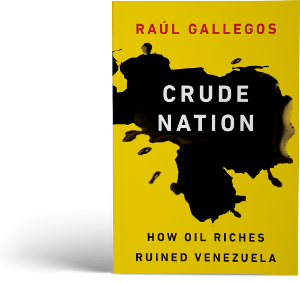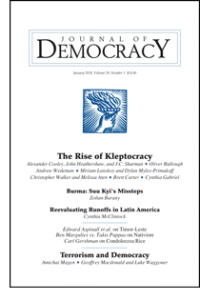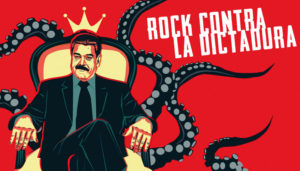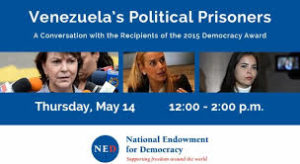 Russia has sent a senior delegation to Venezuela to consult high-ranking government officials on a plan to stem the brutal economic collapse in a key Kremlin ally, Bloomberg reports:
Russia has sent a senior delegation to Venezuela to consult high-ranking government officials on a plan to stem the brutal economic collapse in a key Kremlin ally, Bloomberg reports:
Venezuela is reeling from the impact of U.S. sanctions and low oil prices. Russia, which has maintained close ties with the leftist government of President Nicolas Maduro and provided a lifeline in the form of a $3.15 billion debt-rescheduling a year ago, is offering technical assistance at present.
A new Bloomberg report has exposed deepening Russian-Venezuelan ties as the Nicolas Maduro government attempts to thwart aggressive U.S. sanctions by using an obscure Russian bank, Evrofinance Mosnarbank, which is jointly owned by Russia and Venezuela but not subject to sanctions itself.
 The parlous state of PDVSA, which oversees the world’s largest energy reserves, helps to explain the depth of Venezuela’s collapse and why it finds itself in the eye of a political storm. The scale of the theft and mismanagement that lie behind PDVSA’s collapse has been prodigious, FT analysts Gideon long and John Paul Rathbone add, in a must-read analysis of kleptocratic rule:
The parlous state of PDVSA, which oversees the world’s largest energy reserves, helps to explain the depth of Venezuela’s collapse and why it finds itself in the eye of a political storm. The scale of the theft and mismanagement that lie behind PDVSA’s collapse has been prodigious, FT analysts Gideon long and John Paul Rathbone add, in a must-read analysis of kleptocratic rule:
In 2015, Jorge Giordani, a former planning minister, estimated that of the $1tn that Venezuela received from the windfall of the commodities boom, two-thirds was spent on social programmes. The rest, around $300bn, was stolen or misappropriated.
In one recent case, a judge in Andorra charged 29 people, including two Venezuelan former deputy energy ministers, with a scheme to launder $2.3bn allegedly stolen as kickbacks from company contracts with PDVSA. This August, US investigators revealed another scheme to launder $1.2bn of PDVSA funds. According to court documents seen by the FT, the plan involved companies in Spain and Malta, money launderers from Portugal and Uruguay, a German financier, unnamed US and British banks, fake mutual funds, Miami real estate, Russia’s state-owned Gazprombank and a shell company in Hong Kong.
 Consider two Latin American countries, say analysts Moisés Naím and Francisco Toro:
Consider two Latin American countries, say analysts Moisés Naím and Francisco Toro:
- The first is one of the region’s oldest and strongest democracies. It boasts a stronger social safety net than any of its neighbors and is making progress on its promise to deliver free health care and higher education to all its citizens. It is a model of social mobility and a magnet for immigrants from across Latin America and Europe. The press is free, and the political system is open; opposing parties compete fiercely in elections and regularly alternate power peacefully……
- The second country is one of Latin America’s most impoverished nations and its newest dictatorship. Its schools lie half deserted. The health system has been devastated by decades of underinvestment, corruption, and neglect; long-vanquished diseases, such as malaria and measles, have returned. Only a tiny elite can afford enough to eat. An epidemic of violence has made it one of the most murderous countries in the world….
These two countries are in fact the same country, Venezuela, at two different times: the early 1970s and today, they write in Venezuela’s Suicide: Lessons From a Failed State, an article for Foreign Affairs:
Rather than a military invasion, Venezuelans’ best hope is to ensure that the flickering embers of protest and social dissent are not extinguished and that resistance to dictatorship is sustained. Desperate though the prospect may seem, this tradition of protest could one day lay the foundations for the recovery of civic institutions and democratic practices. RTWT
Nonetheless Mr Maduro, who survived an assassination attempt in August, faces no immediate political crisis at home, The FT adds:
With the help of Cuban advisers, he appears to control the military and is set to win what will certainly be rigged municipal elections in December. The following month he will formally begin another presidential term — the consequence of a sham election victory in May.
 Cuba has also helped make Venezuela a “mafia state”, reports suggest. Some observers hope that the victory of the right-wing Jair Bolsonaro in Sunday’s runoff presidential election in Brazil will improve prospects for placing pressure on the ‘Cubazuela’ axis. At the very least, he will end the use of the state-owned oil giant, Petrobras, to subsidize the military dictatorships in Cuba and Venezuela, says Wall Street Journal analyst Mary Anastasia O’Grady.
Cuba has also helped make Venezuela a “mafia state”, reports suggest. Some observers hope that the victory of the right-wing Jair Bolsonaro in Sunday’s runoff presidential election in Brazil will improve prospects for placing pressure on the ‘Cubazuela’ axis. At the very least, he will end the use of the state-owned oil giant, Petrobras, to subsidize the military dictatorships in Cuba and Venezuela, says Wall Street Journal analyst Mary Anastasia O’Grady.







